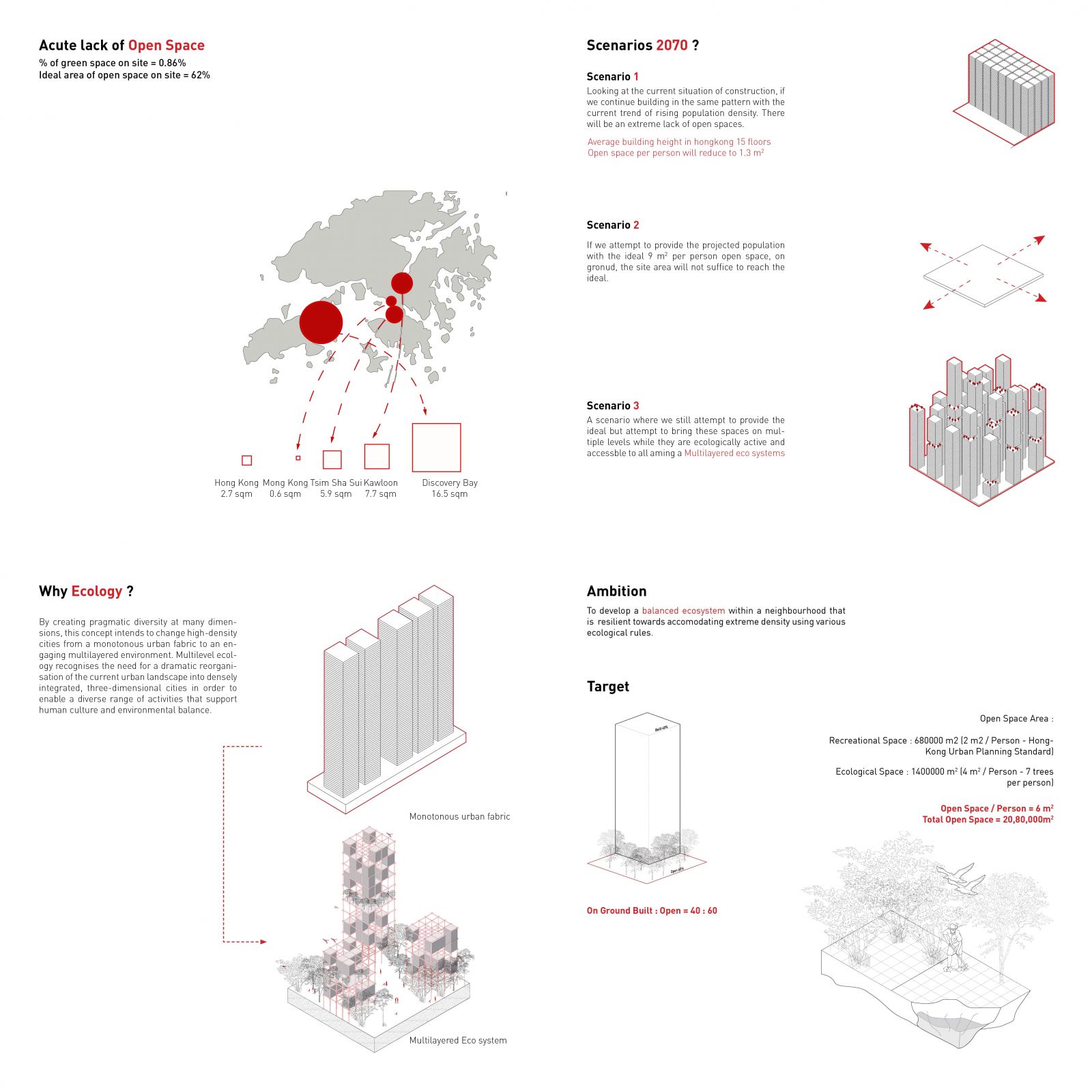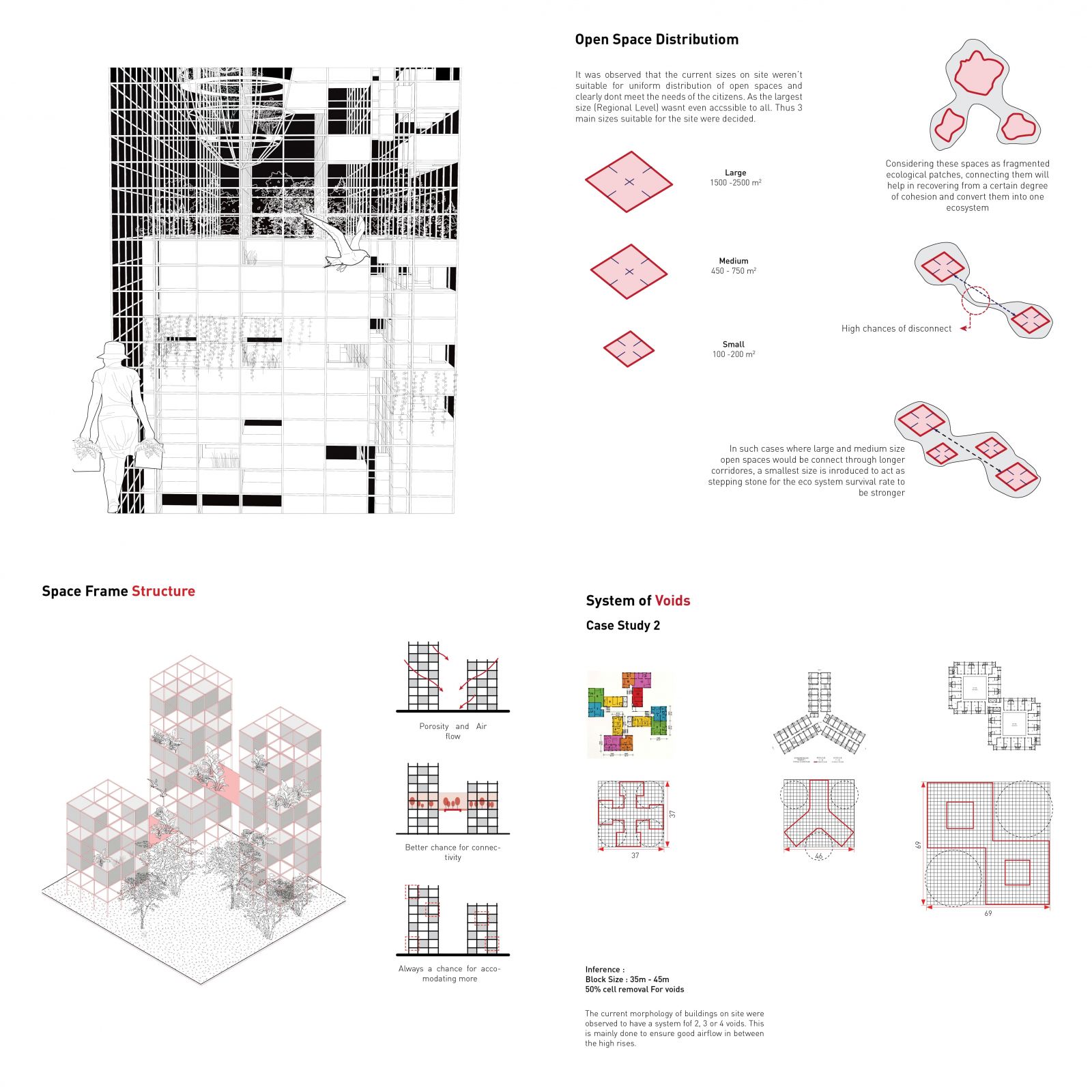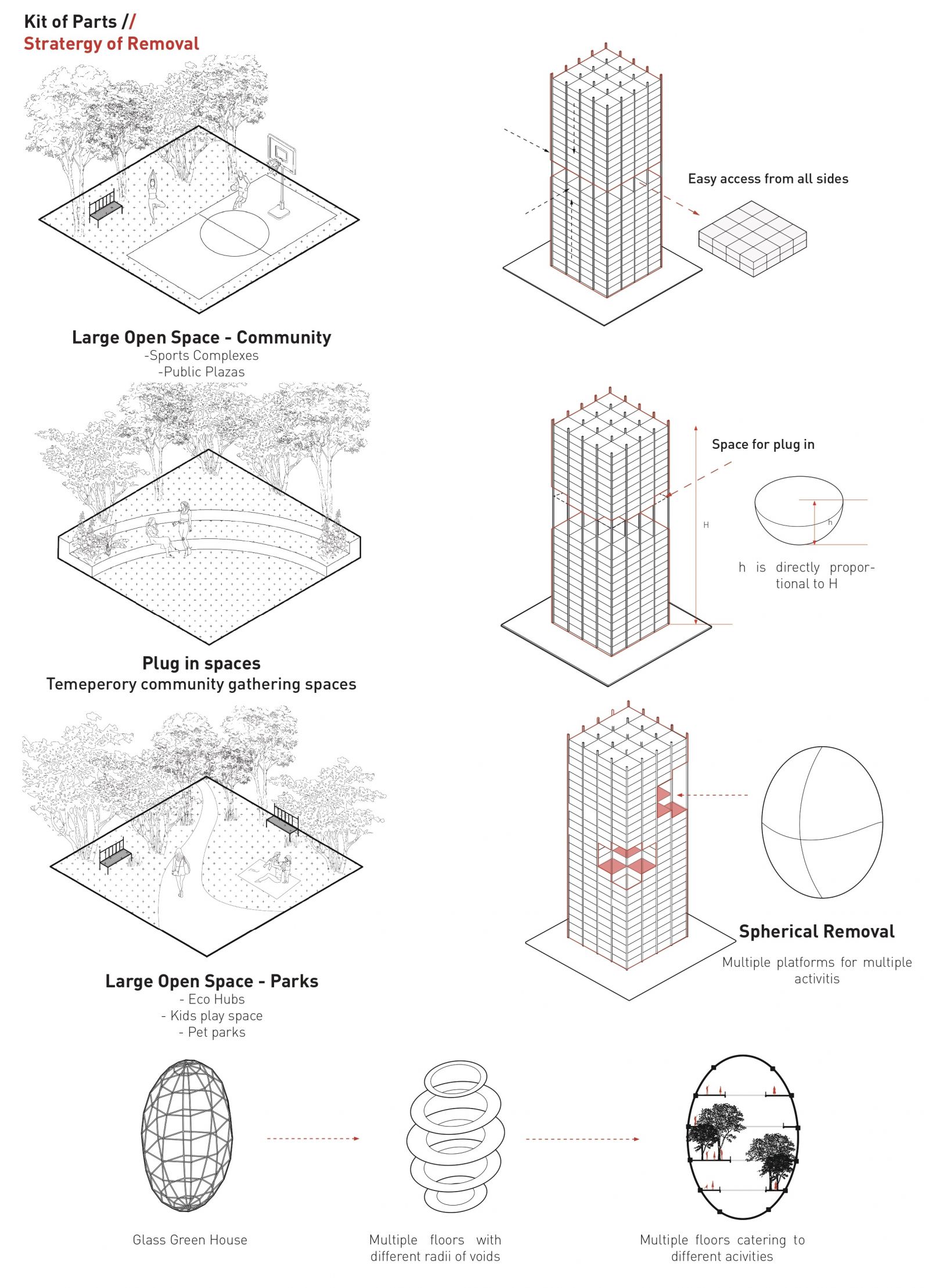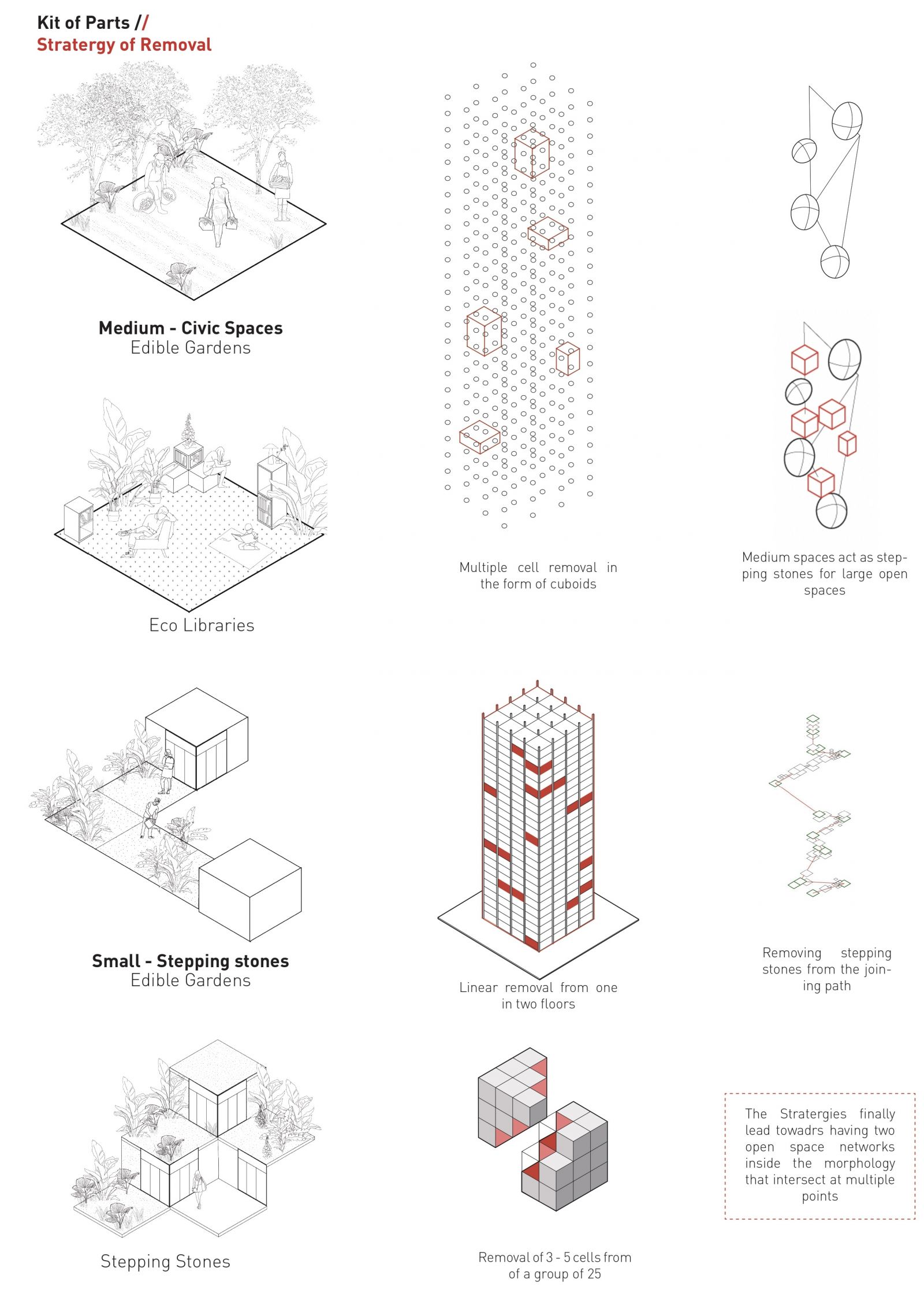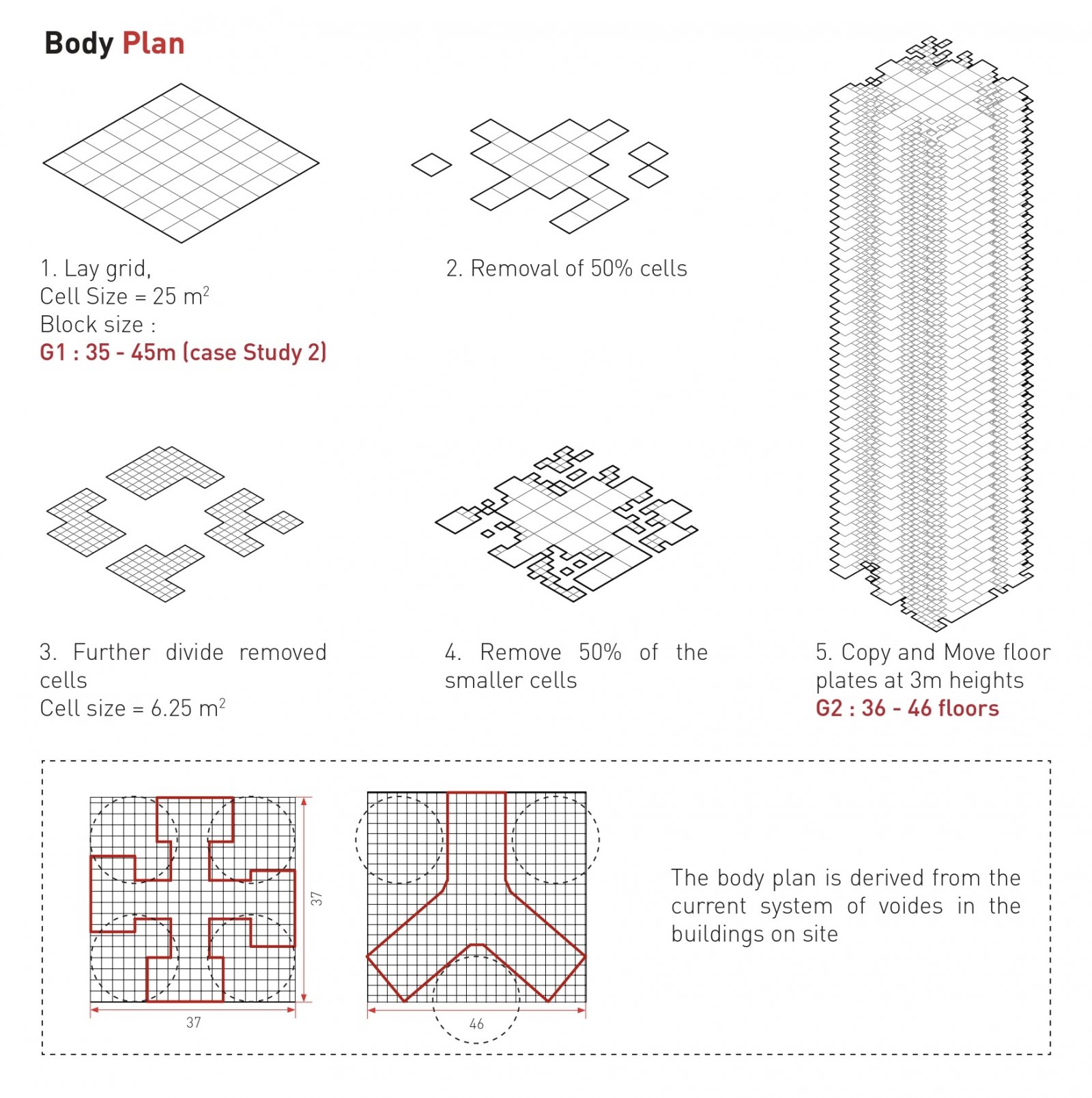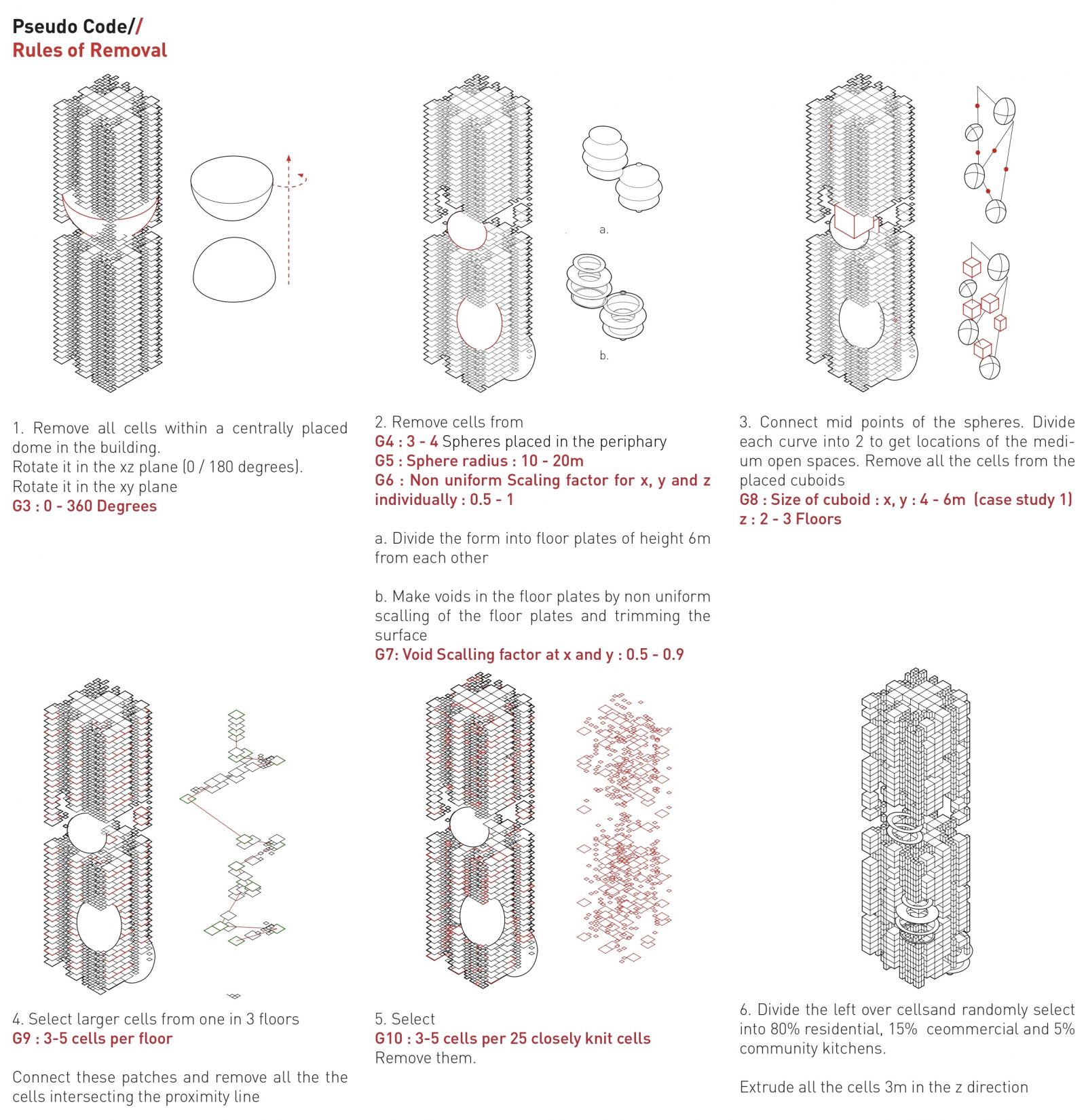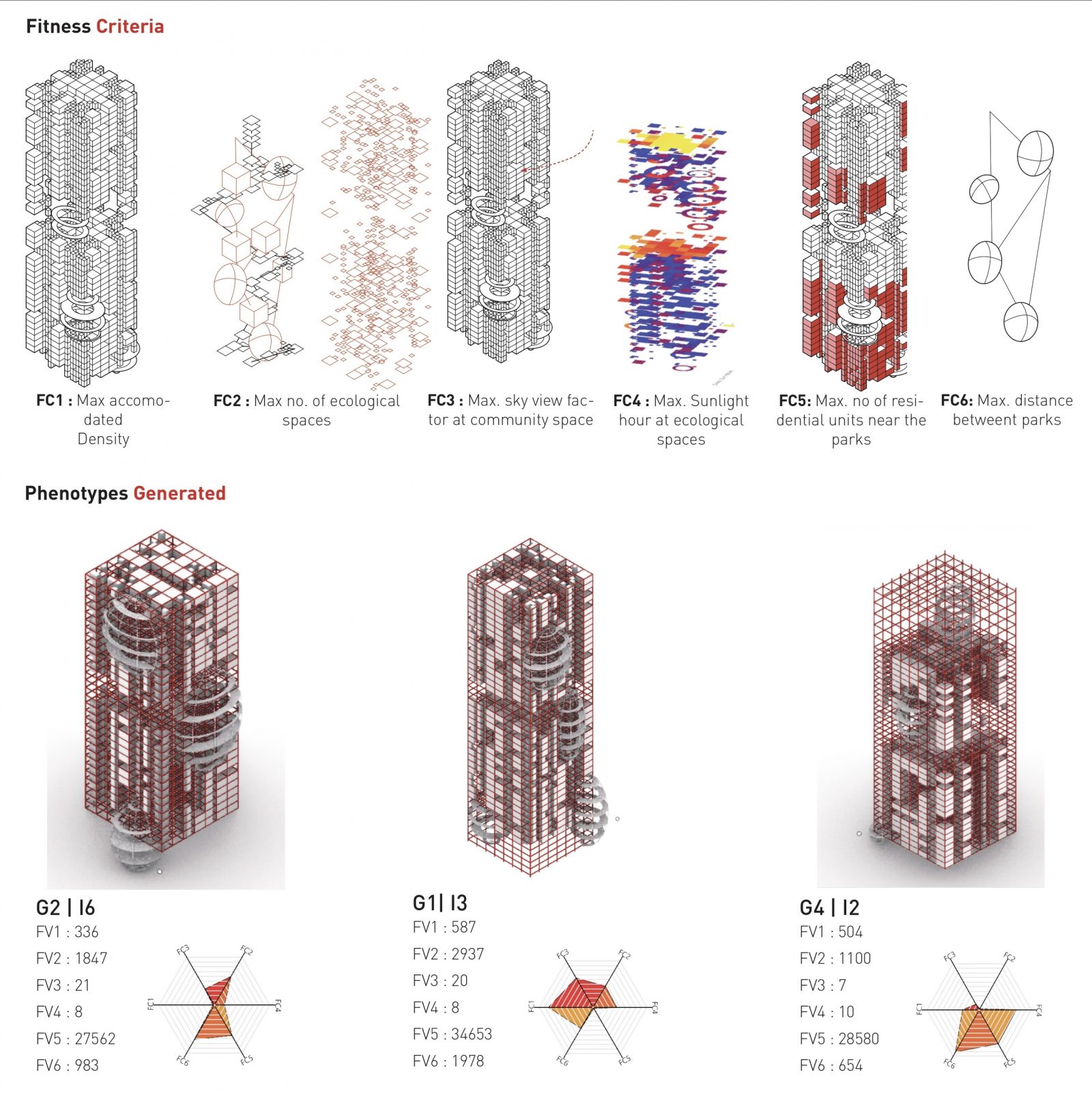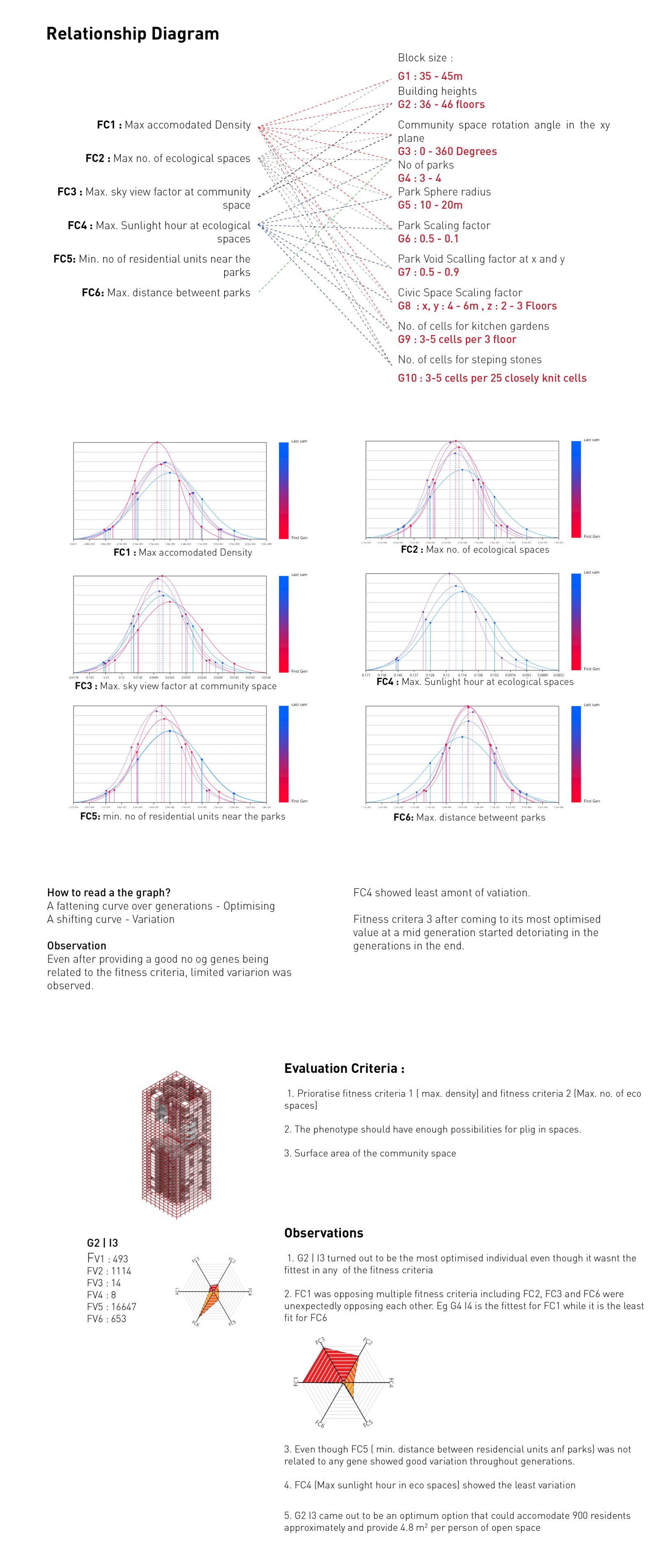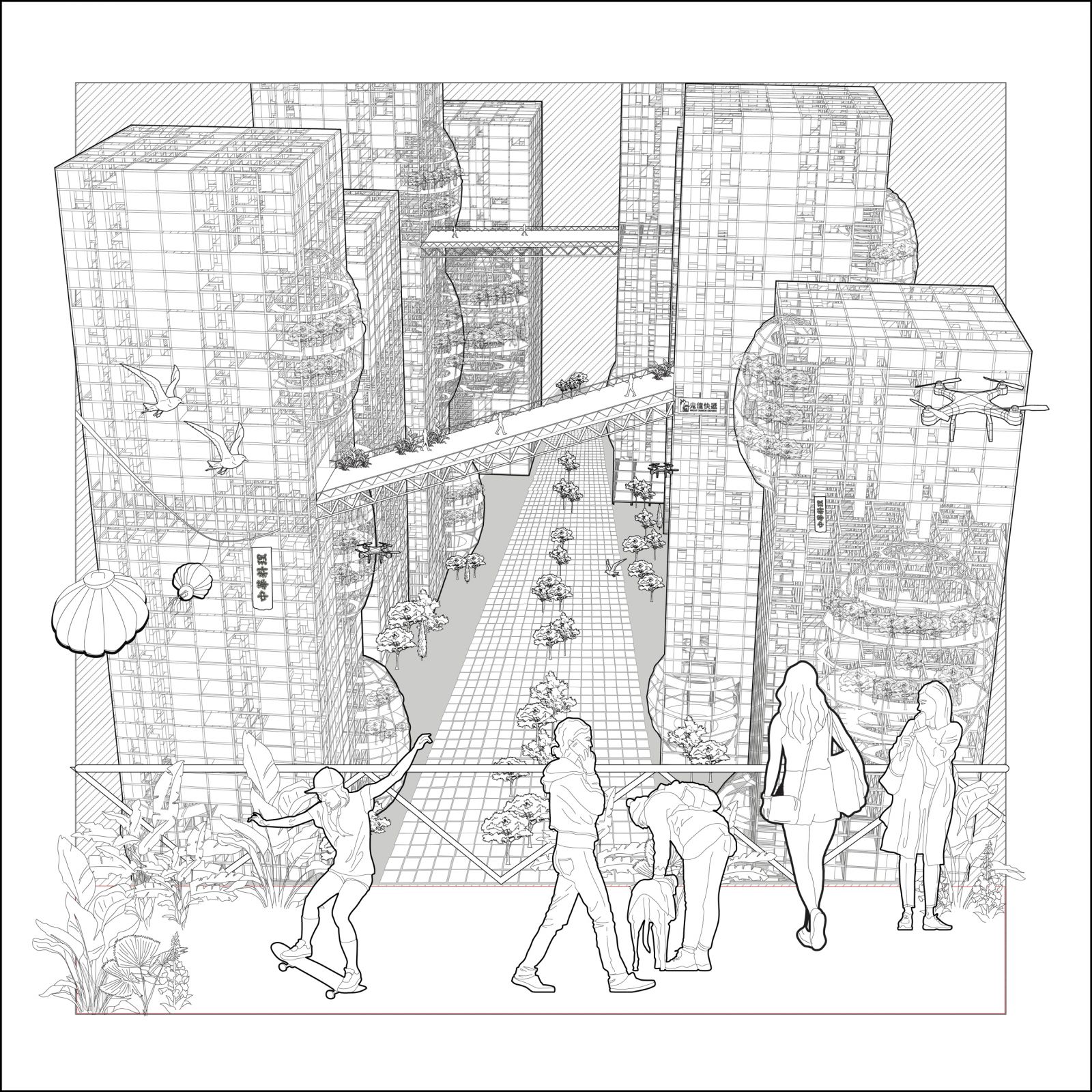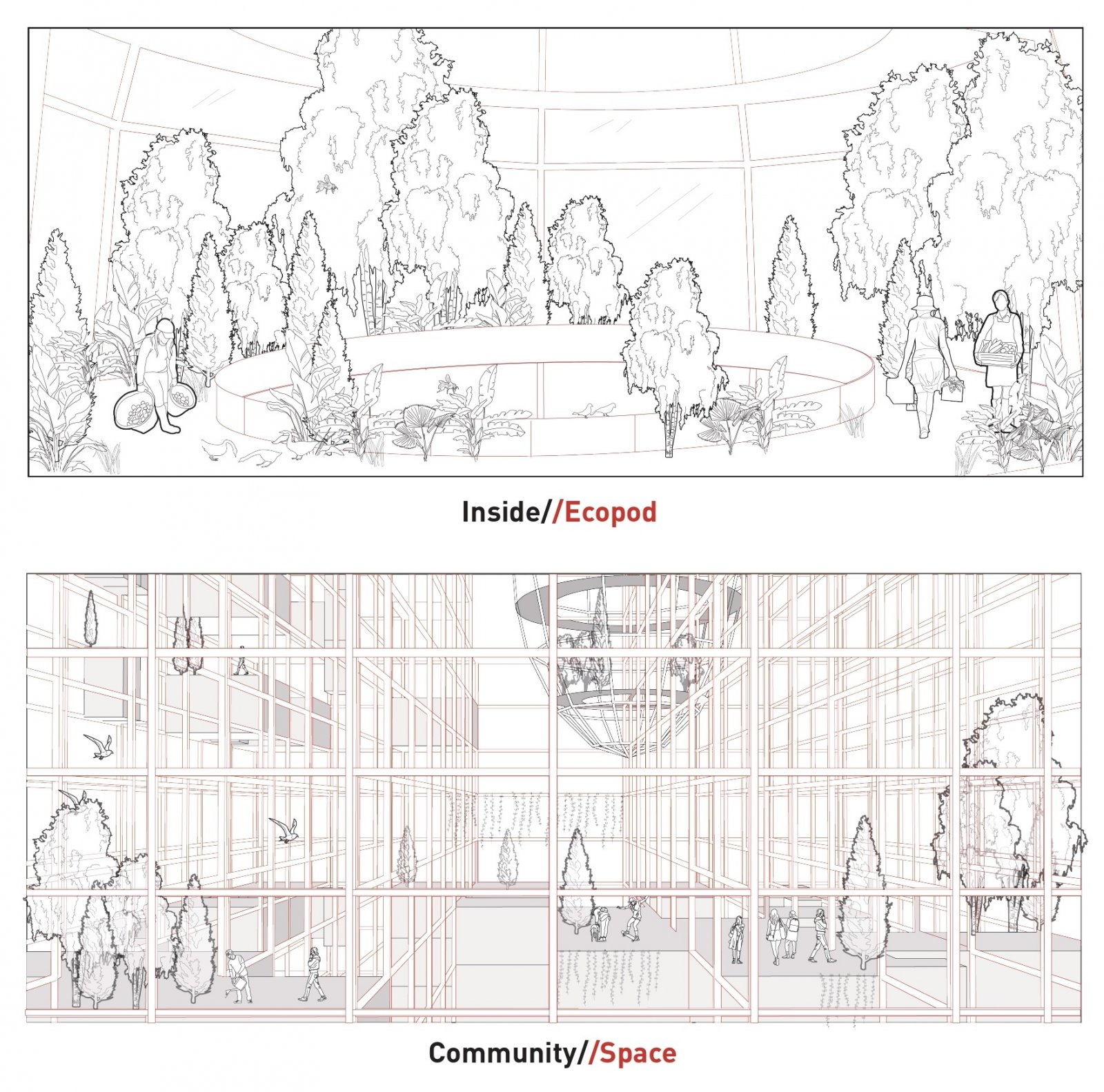- Student Ketki Sandeep Nandanwar
- Code UG180277
- Faculty Planning
- Unit L3 Studio Unit
- Tutor/s Radhika Amin,Arpi Maheshwari
- TA Parth Mehta
Hong Kong was designed in the early 1900s to meet the land demands of the time. This does not account for the population explosion that occurred after the industrial revolution. The residents of Hong Kong’s quality of life has deteriorated due to fast densification in the early 1900s, inadequate urban planning, and a lack of forethought.
Because the primary goal of planning is to maximise occupancy, Hong Kong has a severe shortage of open space. The lack of open space has resulted in physical and mental health issues, as well as playing a significant role in climate change circumstances.
The project speculates a scenario where I attempt to provide the ideal amount of open space but to also bring these spaces on multiple levels while they are ecologically active and accessible to all, aiming a Multilayered eco systems.
By creating pragmatic diversity at many dimensions, this concept intends to change high-density cities from a monotonous urban fabric to an engaging multilayered environment. Multilevel ecology recognises the need for a dramatic reorganisation of the current urban landscape into densely integrated, three-dimensional cities in order to enable a diverse range of activities that support human culture and environmental balance.
